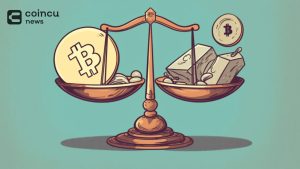South Korean Regulator Cracks Down Following ‘Coin Gate’ Scandal
Key Points:
- South Korean financial regulator requires its employees to declare crypto holdings.
- Lawmakers accused of insider trading prompted calls for transparency.
- South Korea and Japan leading the way in crypto regulation, other countries may follow suit.
The “Coin Gate” scandal that rocked South Korean’s financial system has led to calls for greater transparency and accountability among public officials.
In response, the country’s top financial regulator has implemented measures that require its employees to disclose their cryptocurrency holdings.
The scandal involved allegations of insider trading among lawmakers, one of whom was accused of selling tokens before new cryptocurrency regulations were introduced. The lawmaker was later found to be serving on a crypto-related parliamentary subcommittee at the time.
The aftermath of the scandal has led to a renewed push for transparency among MPs, regulators, and public officials. As a result, the Financial Services Commission (FSC), which is responsible for regulating South Korea’s crypto industry and conducting checks on domestic crypto exchanges, has updated its Code of Conduct for employees.
The revised code now prohibits staff involved with “virtual assets” from trading cryptocurrencies using undisclosed information obtained while performing their duties. In addition, employees who own tokens are now obligated to report this information to the FSC.
To comply with the new regulations, employees will be required to submit a form called the “Report on the Possession of Virtual Assets.” The form mandates that staff disclose the type of virtual assets held, the date of acquisition, and the quantity of tokens owned.
The restriction on crypto trading applies to public officials currently engaged in virtual asset-related duties, as well as those who performed such duties within the previous six months.
While the FSC still requires legislative changes to enforce the new code, it is working to expedite the process and aims to complete it in the second half of this year. South Korea and Japan are often seen as frontrunners in crypto regulation, and their actions may prompt other countries to follow suit.
Ukraine has already implemented laws requiring sitting MPs to disclose all assets, including cryptocurrency holdings. The disclosure of such holdings has led to public outcry in the past due to the large amounts of tokens possessed by Ukrainian lawmakers, raising questions about the origin of these significant crypto reserves.
The “Coin Gate” scandal has prompted the South Korean financial regulator to extend the requirement of declaring crypto holdings to its employees. The updated code of conduct prohibits staff from trading cryptocurrencies using undisclosed information obtained during their duties, and employees with crypto holdings must report them to the FSC. The FSC is seeking legislative changes to enforce the new code and hopes to complete the process later this year.
DISCLAIMER: The Information on this website is provided as general market commentary and does not constitute investment advice. We encourage you to do your own research before investing.





















